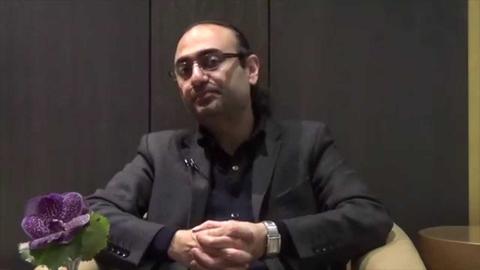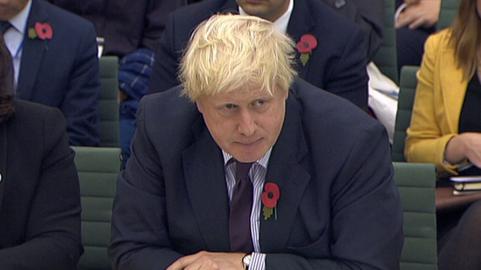Over the last few days, several key developments have turned the Middle East into an even more unsettled place than usual. On November 4, Lebanese prime minister Saad Hariri left Lebanon for Saudi Arabia, where he announced his resignation and accused Iran of threatening his life. Then, a few hours after this, 11 princes, four sitting ministers and dozens of ex-ministers were arrested on charges of corruption in Saudi Arabia. This was followed by Yemeni Houthis launching a ballistic missile at Saudi Arabia on Saturday, November 5, an attack that the Saudis and the Americans blamed on Iran.
Iran denied arming the Houthis with missiles. “We have no capability to transfer missiles to Yemen,” said Revolutionary Guards commander General Mohammad Ali Jafari. But Saudi Arabia insists that Iran was behind the attack. Hezbollah’s leader Hassan Nasrallah in turn accused Saudi Arabia of fomenting unrest and forcing Hariri to resign.
It is now anybody’s guess what troubles await the region. Lebanon effectively has no government at the moment, and there is a real possibility that it could turn into a new battleground for the Islamic Republic of Iran and Saudi Arabia. Worried about the situation, UN Secretary-General Antonio Guterres expressed hope that all sides will focus on supporting the continuity of Lebanon's state institutions.
IranWire talked with Iranian political analyst Mohammad-Javad Akbarin about the developments of the last few days and what we might expect to unfold.
There have been speculations that when Ayatollah Khamenei’s advisor Ali Akbar Velayati visited Saad Hariri — a day before he resigned — Hariri passed a message from Saudi Arabia to Iran, essentially asking for concessions in Yemen. How accurate are these speculations?
We really do not need indisputable facts to analyze what went on in the Hariri-Velayati meeting and the effect of that meeting on Hariri’s resignation. But the information that had been published up to now is not unexpected. For instance, a few short hours after the meeting, media close to Hariri reported that he had put forward two requests to Velayati: Freedom for Nizar Zakka, the Lebanese citizen who is imprisoned in Iran, and [for Iran to] respect the sovereignty of Lebanon.
And people close to Velayati told Al Mayadeen TV [in Beirut] that Hariri could not convince Iran to stop supporting the Yemeni Houthis. This is enough for us to conclude that the meeting was not a success. On the same day, Hariri met with Saudi Arabia’s Gulf Affairs Minister Thamer al-Sabhan and told him about his lack of success.
These facts are enough to make it easier for us to understand what former Lebanese prime minister Fouad Siniora was talking about when he said that Hariri was trying to carry a load that was heavier than he could handle. In other words, in Lebanon’s playground for the fight between Tehran and Riyadh, he fell short.
It was immediately after these developments that a missile was launched from Yemen toward Riyadh. The US explicitly, and Saudi Arabia implicitly, have accused Iran of being responsible. Of course, Iran denies that it has the capability to fire missiles to Yemen and, therefore, claims it is not responsible. Do the Houthis have the ability to launch a missile attack on Riyadh without help from Iran?
To get closer to reality you must read between the lines. The commander of the Revolutionary Guards has denied involvement, but some are asking how come the missile launched by the Houthis had the exact same name and the exact same specifications as the Revolutionary Guards’ Zelzal-2 missile. When the Revolutionary Guards’ Fars News Agency published the news, why did it not explain that they were not the same missile? Why did, the day after the Guards’ commander denied the charges, a newspaper [Kayhan] whose managing editor [Hossein Shariatmadari] is a representative of the Supreme Leader, publish about the next target for a missile attack?
I have no idea whether Iran has the means to get missiles to Yemen or not, but this contradictory and chaotic behavior can only confirm US and Saudi accusations against Iran.
On the other hand, Putin had said earlier that he wants to mediate between Iran and Saudi Arabia. Considering relations between the two countries, and with the US also heightening tensions, is Russia really able and willing to help put an end to problems? How could Russia play such a role?
This is an important question. I am not one of those who say that Russia is only grandstanding to show that it is the savior of the region. I believe that any decision or measure taken by Russia cannot be understood unless we take two things into account. The first is that it wants to consolidate its gains in Syria. And there are western sanctions, that now there are even more of them.
In both cases, Russia needs to reduce tensions between these two regional powers. Russia does not want to stay in Syria. It just wants to consolidate its gains and then exit. This can only be done if Saudi Arabia cooperates — and the amount of tension makes such a cooperation very difficult. Russia is not behaving ideologically and is willing to do anything to safeguard its interests.
Let me give you a couple of examples. This year, exactly the same day that Tehran was spending a lot of money to host the International Conference on the Palestinian Intifada, Russian Deputy Foreign Minister visited Israel to assure them that “Hezbollah will leave Syria.” And, again on the same day, the head of Russian arms manufacturer Kalashnikov, who was in Abu Dhabi for an international defense exhibition, announced that “80 percent of our armaments are missiles and drones and we sold so many of them to countries in the Middle East that we were able to compensate for the losses from American sanctions on Russia.” This is exactly how Beirut’s paper An-Nahar reported his speech.
Many Middle Eastern countries saved Kalashnikov from the consequences of sanctions by buying Russian armaments. And some of them are the same countries that are in a war against Russian allies. This is the same Russia that now says it wants to reduce tensions. Russia looks at things pragmatically, not ideologically.
What about Israel? Israeli Prime Minister Benjamin Netanyahu has warned that Hariri’s resignation should be a “wake-up call” for the international community regarding the threat posed by Iran’s regional ambitions. And a Haaretz article asked whether Saudi Arabia is pushing Israel into war with Hezbollah and Iran. How do you evaluate Israel’s role in this? And what are the chances that it will engage in military action, with American support, especially now that Netanyahu has to deal with corruption cases against him in Israel?
We are talking a few hours after Hassan Nasrallah’s speech, who said that war was unlikely. But it is interesting to note that in a speech before the 33-day war in 2006, he said essentially the same thing. But suddenly the war started and although it ended after a month [because of] a UN Security Council resolution, it cost the Lebanese government and its people hundreds of dead, thousands of homes destroyed, hundreds of kilometers of roads ruined and $15 billion worth of damages.
Contrary to what is often said, it was not only Israel that failed in its goal of annihilating Hezbollah. Iran and Hezbollah also badly miscalculated the human, social and financial costs of the war. The costs were so high that a short while after the war, when a reporter caught Nasrallah off guard by asking him about the costs, he answered that “had we known that it would be like this, we would not have carried out those operations.”
And now Netanyahu’s calculations about war are more complex. [It’s not just about] simple facts such as corruption cases against him. Even Nasrallah said that calculations for war go beyond the resignation of a prime minister and he was right. But Nasrallah himself should heed it as well. With so much animosity towards a powerful section of the region, you cannot calculate when war will start and under what conditions. Constantly walking at the edge of war’s precipice is not responsible behavior. Because it only takes a strong wind to start the war when you don’t expect it.
With this lineup of powers and the possibility of war, is a political realignment in the region on the cards?
If current conditions and policies continue, we must expect more a military lineup than a political one. In the beginning, the Iranian revolution claimed that we were connected to the whole world except for Israel, which we consider an illegitimate state. Then the United States was added to the list of enemies. Later Mr. Khamenei said that Britain and France were enemies, too. And now Saudi Arabia is even more an enemy than Israel, meaning that we exported our revolution to the world by increasing the number and the variety of our enemies.
When we elect a government to realize our democratic demands suddenly, the foreign minister disappears just when we need him, and other people — from General Ghasem Soleimani to Ali Akbar Velayati to Friday Prayers leaders — become our foreign minister. Some would object to why I do not talk about Saudi Arabia and other countries. I’ll say it candidly: An Iranian first and foremost thinks about the national interests of his own country, so his first duty is to cast a critical look at the Iranian government to find out what the role of his government is in fanning the flames of hostilities. We are neither the saviors of humanity nor [do we] have the duty of educating other governments, but we must look critically at ourselves.
visit the accountability section
In this section of Iran Wire, you can contact the officials and launch your campaign for various problems

























comments